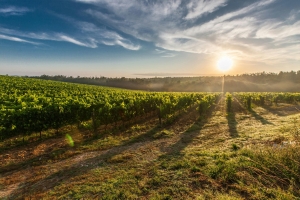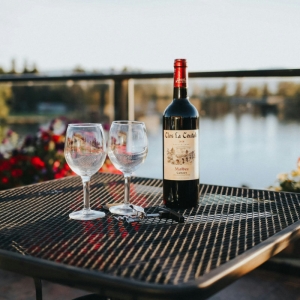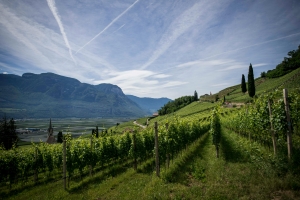Boosting Your Wine Brand with Google Trends & TikTok’s Trending Now Feature
In today’s fast-paced digital world, staying relevant is crucial for any Australian wine brand looking to capture attention and drive engagement. By leveraging Google Trends and TikTok’s Trending Now feature, wineries and wine marketers can align their content with what’s currently resonating with consumers. This strategy not only helps keep content fresh but also ensures it reaches the right audience at the right time.
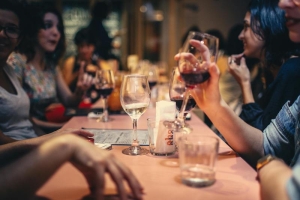
Using Google Trends for Wine Marketing
Google Trends is a powerful, free tool that shows search interest over time for specific keywords. One of the best ways to use this tool is to identify seasonal trends. Wine consumption follows predictable patterns throughout the year, with rosé being a summer favourite, Shiraz being more popular in winter, and sparkling wines seeing a surge in demand around Christmas and New Year. By tracking these seasonal peaks, you can tailor content and promotions to align with consumer interest at the right moment.
Beyond seasonality, Google Trends can help you discover emerging topics in the Australian wine industry. Searching for terms like organic wine, low-alcohol wine, or pet nat can reveal whether interest in these categories is rising. If a particular trend is gaining traction, it’s an excellent opportunity to create educational content, blog posts, or marketing campaigns to capitalise on consumer curiosity.
Another key benefit of Google Trends is its ability to compare search interest across different states and regions. For example, if data shows that South Australians have a stronger preference for Grenache compared to Victorians, you can tailor your content and advertising efforts accordingly. This geographical insight allows you to refine your strategy and target specific markets more effectively. Additionally, Google Trends provides related search queries, showing what people are looking for alongside your chosen keywords. If searches for the best Barossa Shiraz under $50 are trending, you can craft content that directly addresses this demand, ensuring that your brand remains relevant and visible.
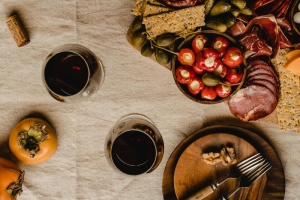
Using TikTok’s Trending Now Feature for Wine Content
With millions of Australian users, TikTok is a powerful platform for engaging with new audiences, and its Trending Now section highlights the most popular content at any given moment. Incorporating trending sounds, challenges, and video formats into your wine marketing can significantly boost your brand’s visibility. If a particular song or challenge aligns with your brand identity, using it creatively in a wine-related context can help you reach a larger audience. For example, you might create a wine and cheese pairing video set to a trending audio clip or showcase a day in the life of a winemaker in the Barossa or McLaren Vale using a popular transition effect.
Hashtags play a crucial role in discoverability on TikTok, and adapting to trending hashtags can help your content appear in front of new viewers. Hashtags such as #WineTok, #AussieWine, #FoodieFinds, or #SipSipHooray can connect your brand with Australian wine lovers who are already engaging with similar content. If you notice that videos about low-intervention wines or natural wines are gaining traction, creating TikTok content that explores these styles, provides tasting notes, or explains the winemaking process can position your brand as an authority in the space.
Engaging with viral conversation formats is another effective way to capture attention. Popular trends like “3 Things I Wish I Knew About…” or “Hot Takes on…” can easily be adapted to wine. A video titled “3 Things I Wish I Knew About Barossa Shiraz Before Tasting It” or “Hot Takes on the Best Wines for Summer in Australia” can leverage existing viral momentum while showcasing your brand’s expertise.

Aligning Your Content for Maximum Impact
To maximise the effectiveness of these tools, it’s essential to use Google Trends for strategic planning and TikTok’s Trending Now for real-time content adaptation. By checking Google Trends weekly, you can identify rising wine-related search terms that can inform your broader content strategy. At the same time, monitoring TikTok trends daily allows you to find relevant viral formats and sounds to incorporate into your content. Once you’ve gathered these insights, you can create timely content that aligns with consumer interest and post consistently while tracking engagement to refine your approach.
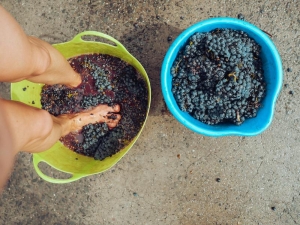
Final Thoughts
By combining the data-driven insights of Google Trends with the fast-moving, viral nature of TikTok’s Trending Now feature, an Australian wine brand can stay ahead of evolving consumer preferences, enhance engagement, and boost brand awareness. So if you’re strategy is to jump on the latest social media trends, these tools can help you create compelling content that resonates with wine lovers across Australia. 🍷

